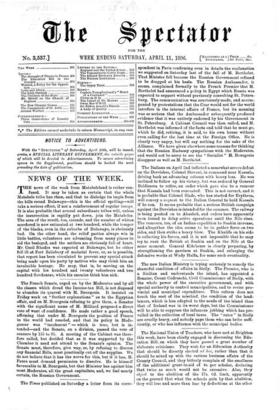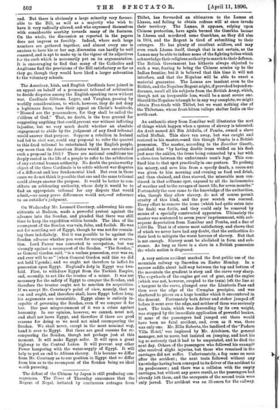The National Union of Teachers, who have met at Brighton
this week, have been chiefly engaged in discussing the Edu- cation Bill, on which they have passed a great number of elaborate criticisms. They wish for an Education Authority that should be directly elected ad hoc, rather than that it should be mixed up with the various business affairs of the County Council, and they bitterly complain of the smallness of the additional grant-in-aid of 49. per scholar, declaring that twice as much would not be excessive. Also, they object to the abolition of the 17s. Gd. limit, apparently on the ground that what the schools gain by that abolition, they will lose and more than lose by deductions at the other end. But there is obviously a large minority very favour- able to the Bill, as well as a majority who wish to have it very radically altered, and who expressed themselves with considerable acerbity towards many of its features. On the whole, the discussion as reported in the papers does not impress us forcibly. Indeed, where such large numbers are gathered together, and almost every one is anxious to have his or her say, discussion can hardly be well reasoned, and is apt to make up in the vigour of its adjectives for the curb which is necessarily put on its argumentation. It is encouraging to find that many of the Catholics and Anglicans find the provisions of the Bill satisfactory so far as they go, though they would have liked a larger subvention t) the voluntary schools.



































